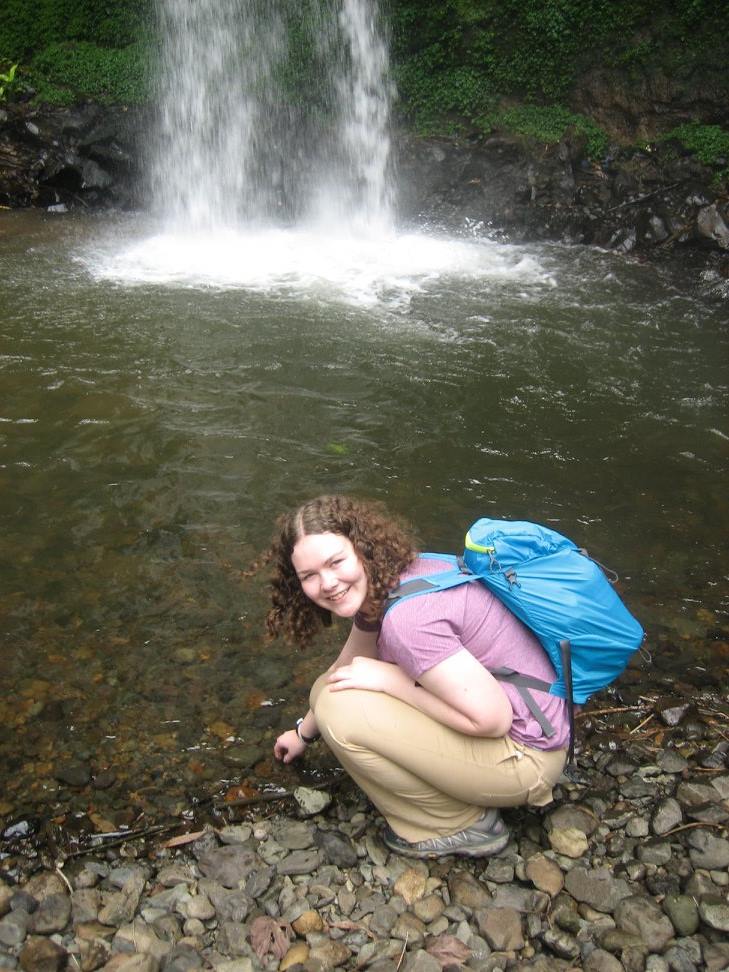Convocation ‘20: Teagan de Seguin
Donna McKinnon - 17 November 2020

When Teagan de Seguin lost her summer job because of the COVID-19 shut down, she had a number of options, including waiting around until school started in the fall, or registering for spring and summer sessions at the U of A. She chose the latter, because waiting around for life to happen has never been an option for de Seguin.
In just three years, she will complete her BA in Women’s and Gender Studies, armed with a degree and four certificates in Community Engagement and Service-Learning; Peace and Post-Conflict Studies; International Learning; and Global Citizenship.
She developed this high level of commitment as a teen, volunteering with a number of organizations such as the Youth Council (Strathcona County), Mustard Seed, and the Hope Mission, as well as the youth leadership program through Toastmasters.
Through her degree program to her work with Community Service-Learning, de Seguin’s passion for social justice has informed many of her choices as an individual, student, and as a volunteer. It is this empathy and growing understanding of society and its marginalized citizens that drives de Seguin to continue her work towards a more equitable future for all.
What drew you to the area of your study, and why are you passionate about it?
I have always been passionate about social justice and community engagement, and after learning about Women’s and Gender Studies (WGS) from a friend it seemed like the perfect fit for me. A lot of people don’t really understand WGS, but for me it is about understanding the social systems that shape our lives and advocating for social justice. I was also really interested in broadening my understanding of social issues through an international lens, which is how I ended up with multiple certificates in lieu of a minor.
What is the most remarkable thing you learned while you were a student?
I can’t point to the single most remarkable thing I have learned, but I can say that I have experienced a tremendous amount of personal growth. WGS has encouraged me to look at the world in new ways; I now see the world as a network of interconnected systems. I have learned to look beyond individuals to understand the systems that are acting upon them. It is not bad luck or a poor work ethic that leads someone to be poor; poverty is a cycle that often intersects with racism, sexism, colonialism, and other systems of oppression. This realization has helped me gain empathy towards others, and to better understand how to support my community. In some ways, it has been discouraging to learn more about the extent to which systems of oppression disadvantage the most marginalized people in our society. At the same time though, I have read so many inspiring activists and scholars with bold visions for an equitable future.
Why did you become involved with Community Service-Learning and what was that experience like?
I found Community Service-Learning (CSL) in my first semester of my first year, and I was immediately drawn to the idea of volunteering for credit. I soon realized that CSL is about so much more than volunteering. My CSL classes integrated very well with my WGS degree; I got to witness and experience the same social systems that I was studying in class. I learned about reciprocity, solidarity, meaningful service, and the importance of self-reflection. Most importantly, I had the opportunity to reflect on my own values and identity in relation to social issues. CSL was a huge part of my education; it also helped me to get two student internships and build connections in the non-profit sector.
Did you face any significant challenges, and if so, how did you deal with it?
While my final year of university did not go as expected, I am happy with the way things turned out. I was originally intending to complete my studies in December 2020, or potentially even April 2021 if I could squeeze in a term abroad. When COVID hit, I lost my summer job at the library and decided to take extra Spring/Summer classes so that I could graduate early. I had already finished all my degree requirements, so I carefully selected my classes to support my well-being. Two of my favourite classes this summer were yoga and art therapy.
What piece of advice do you wish someone had given you when you started?
People did tell me to get involved, make friends, and try new things. I certainly did this to an extent, but between school, work, and volunteering, I do feel like there are some things I missed out on. I wish I would have studied abroad, been involved in more clubs, and participated in more fun events/activities on campus. My advice would be not to rush — you don’t need to finish in four years, and there is more to your education than just school. Learning through experience is so valuable, and the best way to do this is to get out there.
Also, you never need to buy brand new textbooks! Save yourself some money by joining a textbook exchange group on Facebook, ordering used books from Amazon, or getting the e-Book.
What is next for you?
I am currently working full-time at Catholic Social Services in Immigration and Settlement. Post-COVID I would love to catch up on my travels and then start volunteering with a sexual assault centre or domestic violence shelter.
Although I was sure I didn’t want to go back to school, I find myself thinking a lot about furthering my education. I might be back in school sooner than I ever could have imagined!